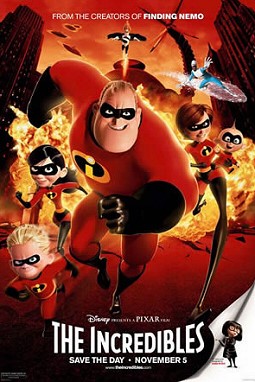
Every Sunday evening my wife and I sit down to go over the upcoming week. You know the sort of thing where you discuss which of us has evening meetings, who will pick up the kid, when we should have dinner. We are basically trying to coordinate the week in a vain attempt to provide some sort of organization and order to our lives. Kelly was preparing to go on a business trip to Florida (yes actually a beach resort) for a conference and would be gone Wednesday-Saturday night. I knew this trip had been coming for quite some time and admittedly I was a bit jealous of her but I felt mentally prepared for the event. What I didn’t realize was that my work schedule for the week was jam-packed. I had work obligations for the entire week, seven days in a row. At that moment, frustration set in as I realized my sacred weekend downtime for the upcoming week was non-existent. It was in this moment, that I vented to Kelly; thinking and saying things like; You have to go on a business trip during the busiest week of my calendar? My business trips are never this long and how am I going to meet all my work obligations while taking care of our daughter? And of course, most importantly, I need my weekend or at least a day off…..When is that supposed to happen?? Obviously, none of this was her fault, and by this time in our marriage she knew this was my way of reacting irrationally while blowing off some steam. It didn’t take long for me to realize the immaturity of my venting and my lack of composure in adversity (Titus: 2:2). I eventually calmed down, refocused, and said all the right surface statements all the while trying figure out ways to deal with my complex weekly calendar. With no immediate family conveniently located, Kelly knew I might need a little help. She had already appointed a couple of friends to be on standby in anticipation of her trip (yeah she’s that good). I felt a little more at ease knowing that I had a couple of reserves on the sideline.
Wednesday morning, Kelly was out the door by 5am. I was ready to take this challenge head on. I was up, saw Kelly off, made breakfast, woke up the kid, fed the kid, packed lunch, and we were ready to roll. I got us both out the door on our way to school and work on time. At the end of the day I picked the kid up, made dinner, and made it home by 5:30pm. Day one conquered like clockwork. Day two Thursday was a similar day. On my way out from work that day, a couple of members from my administrative team took their jabs at me in jest by saying things like how “being a mom isn’t so easy” and “see how much Kelly has to juggle?” I really thought I understood and acknowledged their points; but to be honest, things seemed to be going very smoothly. Dare I say…. motherhood is overrated? Ultimately day two ended with Thursday mirroring Wednesday in its flawless execution (Proverbs 19:21).
Thursday night the kid and I went out to eat and even made it home in time to take the dogs for a walk. Not only were we executing the week near perfection, we were even able to take care of our dogs properly. What a week indeed! (Daniel 4:4). All of this was short-lived and changed drastically in the wee hours of Friday morning, 1am to be exact.
As a parent you know the sounds I am talking about. You wake up a bit startled because you can hear your child bursting out of bed, quickly followed by the sound of their feet pounding on the floor as they quickly dart for the bathroom. I don’t need to say anything more about the next sounds I heard once she had reached that bathroom.
At this point, I am trying not to panic and can’t believe it but my daughter has a stomach virus. From 1am to 4am this dreaded routine had a frequency of every 30 minutes. To make a long story short, we completed this miserable war at 10am Friday morning. My routine was simple; hold her hair back, wait it out, get her back in bed and clean… clean… clean. Once I finished this routine, my mind went immediately to my workday as I knew there would be no way I would make it there that morning. So the first thing I did when I completed my fatherly responsibilities was to email my team at work to forewarn them about my upcoming absence.
11am marked the beginning of a new peace, a true Pax Romana if you will. As exhausted as I was, my daughter seemed to be making her way out of this and that brought a sense of calm. By this time everyone on my admin team knew the situation. They fully understood, and offered their sympathy while suggesting a few remedies for my daughters ordeal. I had reached out to Kelly as well on more than one occasion and thanks to her, I had a friend on their way bringing reinforcements of all the fundamental staples; Lysol, bleach spray, Saltine crackers, ginger ale, and a bottle of Coke. Now that was a brave friend. Anyway….away from our domestic war zone, work was busy, real busy. My admin team had their hands full. Of course “missing work guilt” started to settle in my head a bit. Believe it or not I actually enjoy what I do and I possess a serious sense of obligation. I was able to battle through that “missing work guilt” effectively because I know my daughter’s health is more important, but I had fallen short with my behavior toward Kelly because I was not communicating positively with her throughout the process. Age old jealousy would sneak in there every now and then and I would respond with a passive-aggressive text message every so often. Images of her frolicking about at her professional conference, which I remind you just so happens to be at a beautiful beach resort, kept haunting my thoughts (1 Samuel 18:8). Then there was me; bleaching the entire house, washing sheets, cleaning the bathroom, and trying to get the kid to drink some ginger ale. Then I had what alcoholics might call a “moment of clarity.” This was not the first stomach virus my daughter ever had. Where was I when all these things were being done before? Oh yeah, I am not a mom. Forgive me Lord for I have sinned, motherhood is most definitely not overrated.
My daughter’s stomach virus had reminded me about all the things that Kelly does and continues to do for our family. I had to be in her role for just a few days and it was exhausting. I made it a point to tell Kelly in person how I valued her as a wife and mother and how appreciative I was for her efforts. In our conversation she had another point that continues to further illustrate the idea that we need to be careful with what we hold sacred. At the end of the ordeal, I missed work obligations on Friday and Saturday. Kelly had said; “In a weird sort of way, our daughter was able to get your weekend back.” I had complained and whined selfishly about the loss of my weekend at the beginning of this journey and had finally realized that the Lord said “Well, you can have your precious weekend, but there will be lessons to learn” (Proverbs 3:11-12).
Titus 2:2 Older men are to be sober-minded, dignified, self-controlled, sound in faith, in love, and in steadfastness.
Proverbs 19:21 Many are the plans in the mind of of a man, but it is the purpose of the Lord that we will stand.
Daniel 4:4 I Nebuchadnezzar, was at ease in my house and prospering in my palace.
I Samuel 18:8 And Saul was very angry, and this saying displeased him. He said, “They have ascribed to David ten thousands, and to me they have ascribed thousands, and what more can he have but the kingdom?
Proverbs 3: 11-12 My son, do not despise the Lord’s discipline or be weary of his reproof, for the Lord reproves him whom he loves, as a father the son in whom he delights.
Bible verses ESV translation.
Continue reading A Lesson on Selfishness: The Ultimate Virus →










